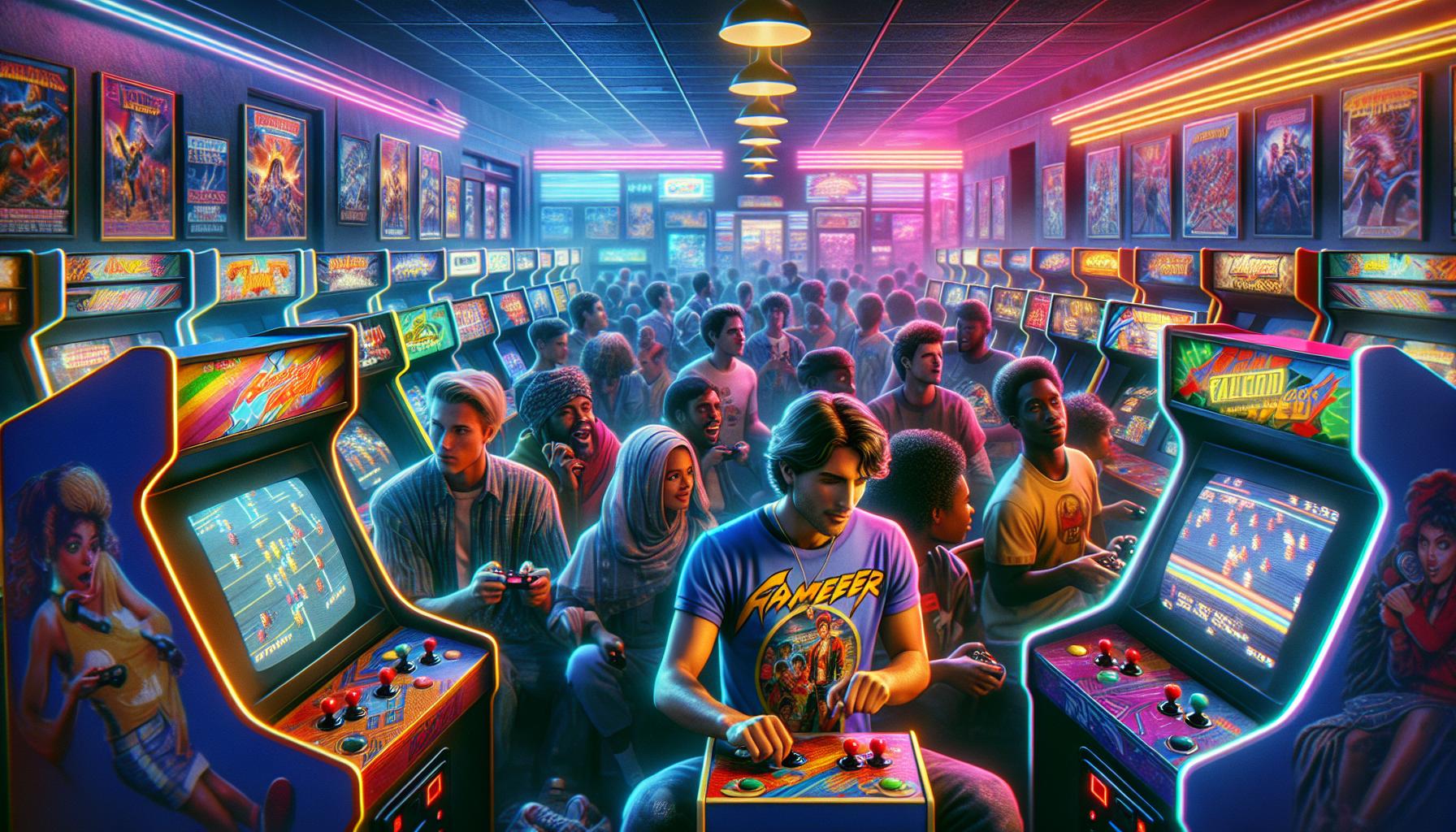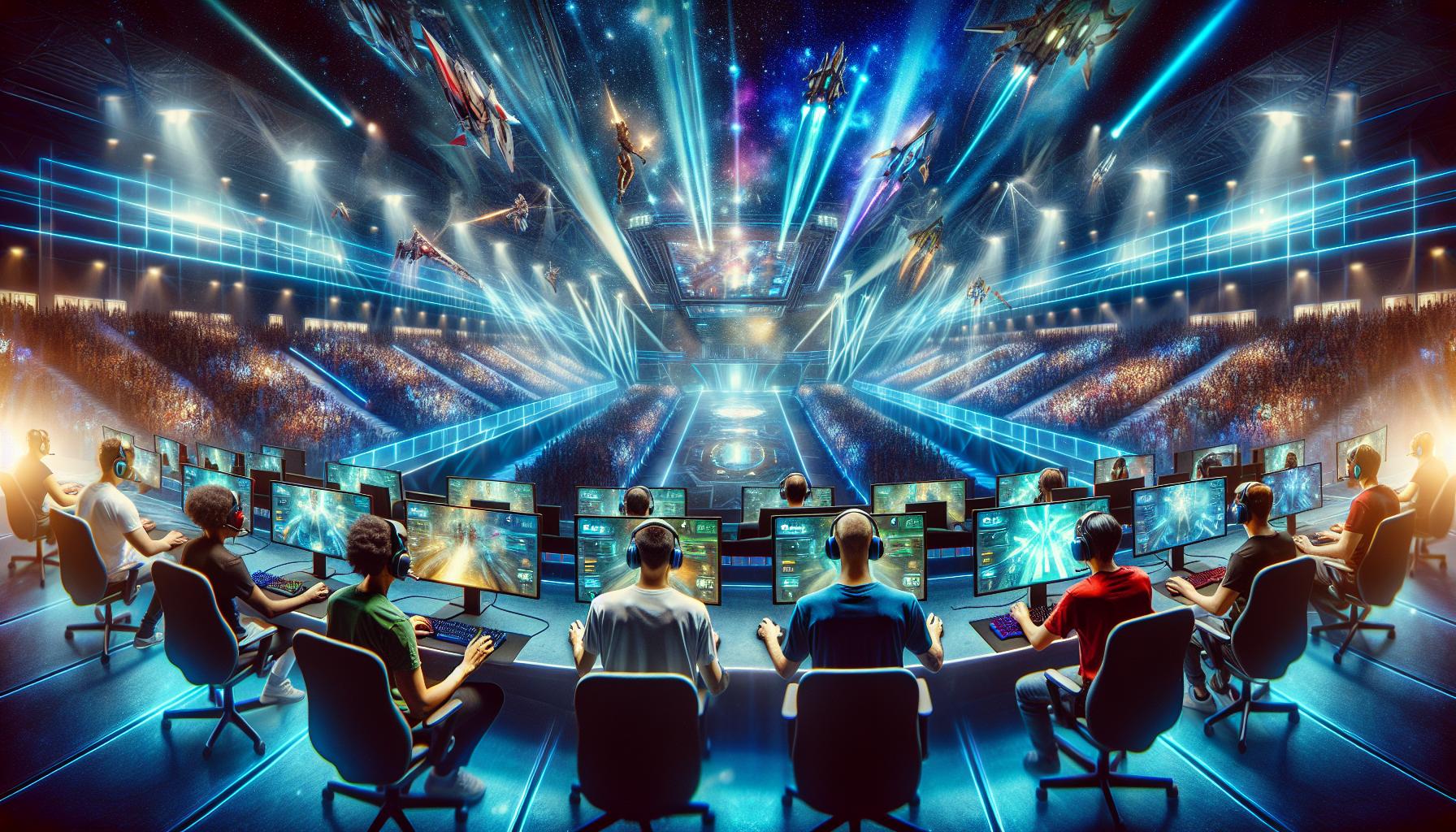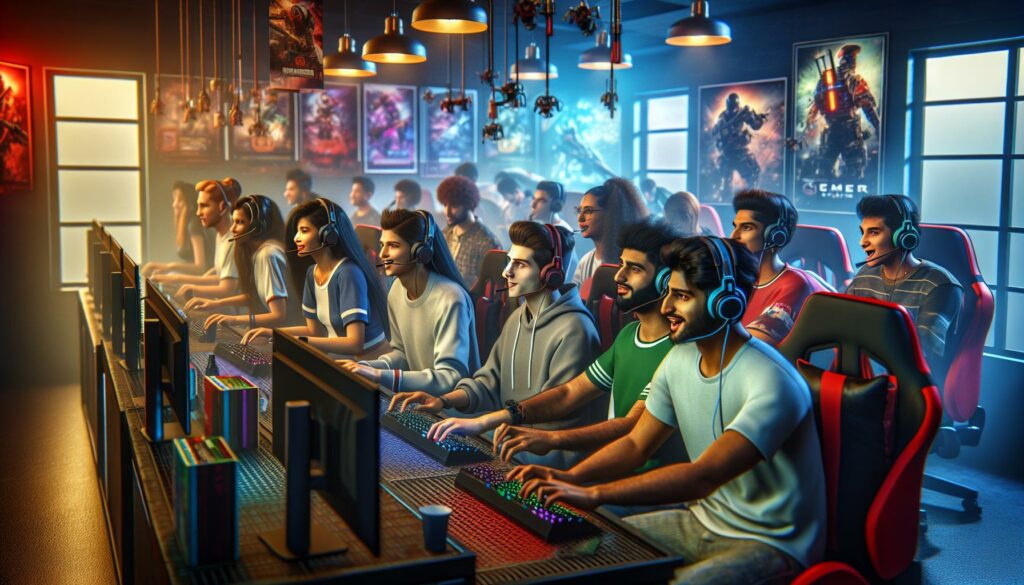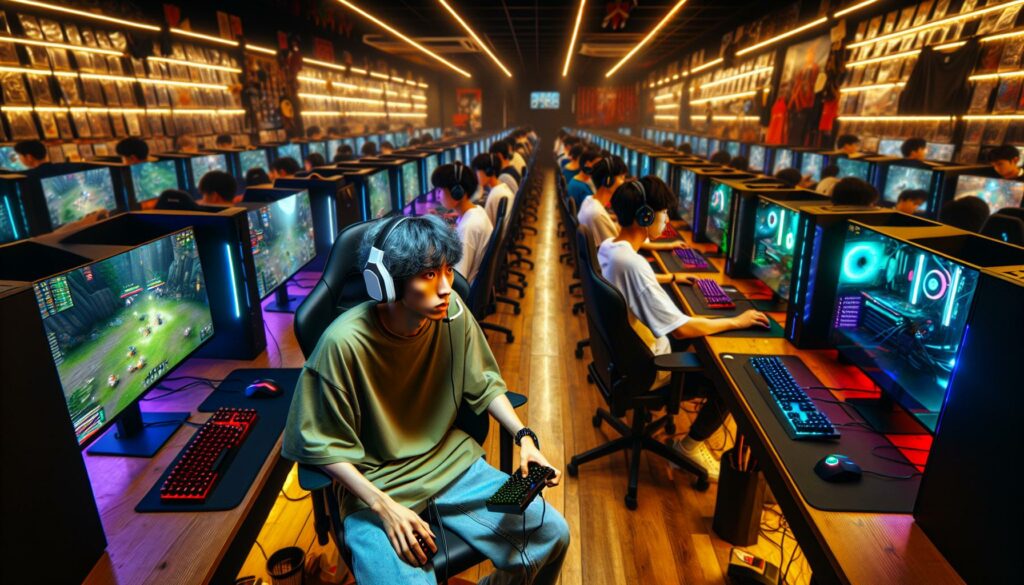From bleeping arcade machines to stunning virtual reality worlds gaming has transformed from a niche hobby into a global cultural phenomenon. What started in dimly lit arcades of the 1970s has evolved into an $200 billion industry that shapes entertainment social connections and even professional careers.
The journey of gaming culture reflects humanity’s endless desire for play competition and storytelling. Those first pixelated adventures on Atari and Nintendo systems laid the foundation for today’s immersive gaming experiences. Now millions of players worldwide connect through online multiplayer games create vibrant communities and even make a living by streaming their gameplay to eager audiences.
History of Gaming Culture
The emergence of video games marked a pivotal shift in entertainment history, transforming simple electronic interactions into a cultural phenomenon. The period between 1971 and 1983 established the foundation for modern gaming through technological innovations in both arcade machines and home consoles.
Early Arcade Gaming Culture
The first commercial arcade video game, Computer Space, launched in 1971, followed by Pong in 1972, which sparked the arcade gaming revolution. Arcades became social hubs where players gathered to compete for high scores on popular games like Space Invaders (1978) Pac-Man (1980) Donkey Kong (1981). These locations fostered competitive gaming communities with tournaments drawing hundreds of participants competing for cash prizes. The golden age of arcades peaked in 1982 with 13,000 arcade locations across North America generating $8 billion in quarters.
| Year | Milestone | Revenue |
|---|---|---|
| 1971 | Computer Space Launch | $3M |
| 1972 | Pong Release | $150M |
| 1982 | Peak Arcade Era | $8B |
- Atari 2600: Interchangeable game cartridges enhanced replay value
- Intellivision: Advanced graphics capabilities displayed 16 colors
- ColecoVision: Arcade-quality gaming experience with expandable hardware
- Vectrex: Built-in vector display for fluid animation effects
The Golden Age of Gaming (1980s)

The 1980s marked gaming’s most transformative decade, characterized by technological innovations and cultural shifts. This era established video games as a mainstream entertainment medium, with global revenues reaching $5.5 billion by 1985.
Nintendo’s Cultural Impact
Nintendo revolutionized the gaming landscape with the release of the Nintendo Entertainment System (NES) in 1985. The console introduced iconic franchises like Super Mario Bros, The Legend of Zelda, and Metroid, which sold over 40 million copies each. Nintendo’s quality control policies created a seal of approval system, restoring consumer confidence after the 1983 market crash. The company’s marketing strategies, including Nintendo Power magazine with 1.5 million subscribers, established gaming as a family-friendly activity. Nintendo’s influence extended beyond gaming through merchandise, television shows, and cereal brands, generating $250 million in licensed products by 1989.
Competitive Gaming Emerges
Competitive gaming gained prominence through arcade tournaments, drawing 10,000 participants to the 1980 Space Invaders Championship. Twin Galaxies, established in 1981, became the official scorekeeper for video game records, publishing achievements in Guinness World Records. The Nintendo World Championships in 1990 attracted 90,000 competitors across 30 cities. Professional gaming events offered substantial prize pools, with the Atari $50,000 World Championships setting new standards for competitive gaming. Electronic gaming magazines documented high scores and tournament results, creating the first gaming celebrities and establishing competitive gaming communities.
Gaming Goes Mainstream (1990s-2000s)

The 1990s marked a transformative period in gaming culture as technological advancements enabled more sophisticated graphics enhanced gameplay experiences. The introduction of 3D graphics PlayStation console in 1994 catalyzed gaming’s mainstream acceptance, generating $1.2 billion in revenue during its first year.
Online Gaming Communities
Online gaming communities emerged through pioneering platforms like Battle.net, launched in 1996 with Diablo. Internet connectivity transformed multiplayer gaming, connecting 15 million players worldwide by 1999. Popular titles such as EverQuest Counter Strike built dedicated communities with active forums discussion boards chat rooms. Gaming clans guilds formed around titles like Quake StarCraft, organizing regular tournaments creating social hierarchies. CompuServe AOL gaming zones attracted 100,000 concurrent users by 1998, while independent fan sites modding communities enhanced games through user-created content. These digital spaces fostered lasting friendships collaborative gameplay experiences across geographical boundaries.
eSports Evolution
Competitive gaming entered a new era with the Korean StarCraft scene drawing 100,000 spectators to live events in 1998. Major tournaments like World Cyber Games, launched in 2000, offered $600,000 in prize pools across multiple games. Professional teams emerged with corporate sponsorships structured training regimens salary contracts. Counter Strike tournaments attracted 10 million viewers online by 2001. The Cyberathlete Professional League established standardized competition formats broadcasting methods for competitive matches. South Korea led esports development with dedicated television channels professional player unions 24-hour gaming channels. Tournament organizers implemented advanced production techniques professional commentary teams to enhance viewer experience. Prize pools reached $15 million annually by 2005 across major international competitions.
Modern Gaming Culture

Gaming culture transformed into a global phenomenon with the rise of digital connectivity. Social platforms merged entertainment with community engagement, creating new forms of interactive media consumption.
Social Media and Streaming
Gaming content dominates social media platforms through live streams, video clips, and community discussions. Twitch.tv leads the streaming landscape with 31 million daily active users streaming 2.5 billion hours per quarter. Popular content creators like Ninja and PewDiePie attract millions of followers, generating substantial revenue through subscriptions, donations, and sponsorships. Gaming communities thrive on platforms such as Discord, hosting 150 million active users in dedicated gaming servers. Instagram features 500 million gaming-related posts monthly, while YouTube Gaming accumulates 100 billion watch hours annually.
Gaming as Entertainment Media
Video games surpass traditional entertainment mediums in revenue generation, reaching $180 billion in 2021. Mobile gaming accounts for 52% of the market share, followed by console gaming at 28% and PC gaming at 20%. Live service games generate recurring revenue through microtransactions, with Fortnite earning $5.8 billion in 2021. Gaming franchises expand into movies, TV shows, and merchandise, with The Witcher Netflix series attracting 76 million viewers in its first season. eSports tournaments fill major venues, with League of Legends World Championship 2021 peak viewership reaching 73 million concurrent viewers.
The Impact of Gaming on Society
Gaming culture has fundamentally reshaped modern society through its influence on entertainment, social connections, and digital interactions. The integration of gaming into mainstream culture has created new forms of expression, communication, and community building.
Gaming’s Influence on Pop Culture
Video games shape contemporary entertainment across multiple media channels. Popular franchises like Pokemon, Sonic, and Mario Bros have expanded into successful movie adaptations, generating over $1.6 billion in global box office revenue. Gaming references permeate music, fashion, and art, with artists incorporating gaming aesthetics into their work. Major fashion brands collaborate with gaming companies, as evidenced by Louis Vuitton’s partnership with League of Legends creating in-game skins and physical clothing collections. Television shows incorporate gaming themes, with 72% of Netflix’s animated series featuring gaming-inspired content. Gaming soundtracks from composers like Nobuo Uematsu reach mainstream recognition, performed by symphony orchestras in dedicated concerts worldwide.
Digital Communities and Identity
Online gaming platforms foster diverse virtual communities connecting millions of players globally. Discord hosts 150 million active monthly users across 19 million gaming servers, facilitating real-time communication and community building. Gaming avatars and personas enable players to explore identity expression, with 65% of gamers creating multiple online personas across different platforms. Virtual spaces like Fortnite transform into social hubs, hosting virtual concerts attracting 12.3 million concurrent viewers. Gaming communities establish their own languages, customs, and social norms, creating distinct digital subcultures. Platforms like Reddit’s r/gaming community boast 33 million members sharing experiences, creating content, and participating in collective discussions about gaming culture.
Gaming Culture’s Future Trajectory
Emerging technologies like virtual reality headsets create immersive gaming experiences, reaching 171 million active users in 2023. Cloud gaming platforms enable instant access to high-end games without expensive hardware, attracting 23.7 million paying subscribers.
Artificial intelligence enhances gaming experiences through:
- Advanced NPCs with realistic behaviors
- Procedurally generated content that creates unique gameplay scenarios
- Personalized difficulty adjustments based on player performance
- Dynamic storylines that adapt to individual choices
The metaverse concept transforms gaming spaces into:
- Social hubs hosting virtual concerts with 45 million attendees
- Digital marketplaces generating $54 billion in virtual goods sales
- Cross-platform environments connecting 3.2 billion global players
- Virtual education platforms offering gamified learning experiences
Mobile gaming continues expanding with:
| Segment | Market Value | Growth Rate |
|---|---|---|
| Casual Games | $63.2B | 12.3% |
| Hyper-casual | $27.4B | 15.7% |
| Mid-core | $41.8B | 9.4% |
Blockchain technology integrates into gaming through:
- Play-to-earn models rewarding players with cryptocurrency
- NFT marketplaces for unique in-game assets
- Decentralized gaming platforms owned by player communities
- Cross-game item ownership verification systems
Professional gaming evolves with:
- Franchised leagues offering $500 million revenue sharing
- University esports programs providing $15 million in scholarships
- Advanced training facilities using performance analytics
- Regulatory frameworks protecting player interests
- Adaptive controllers supporting diverse physical abilities
- Multi-language voice recognition systems
- Customizable interface options
- Age-appropriate content filters



